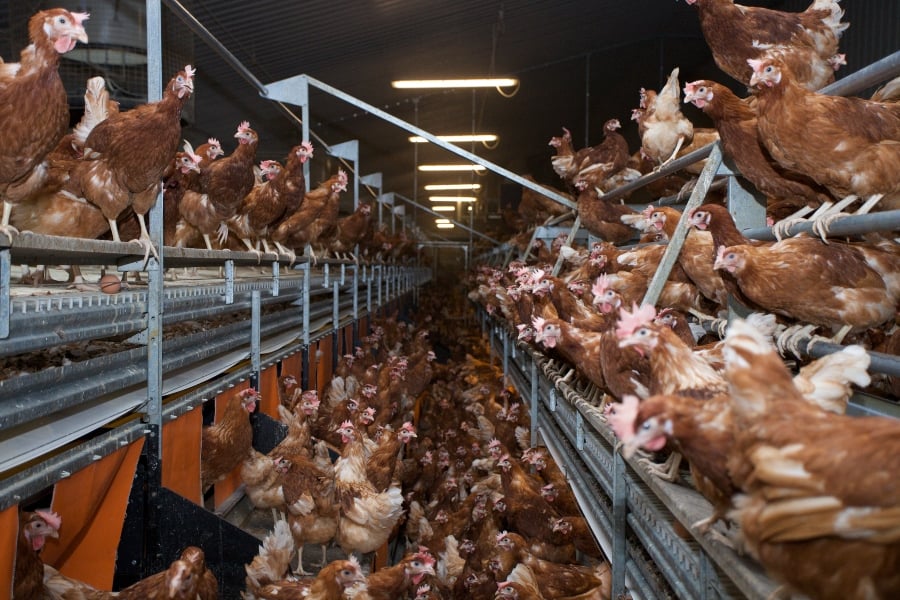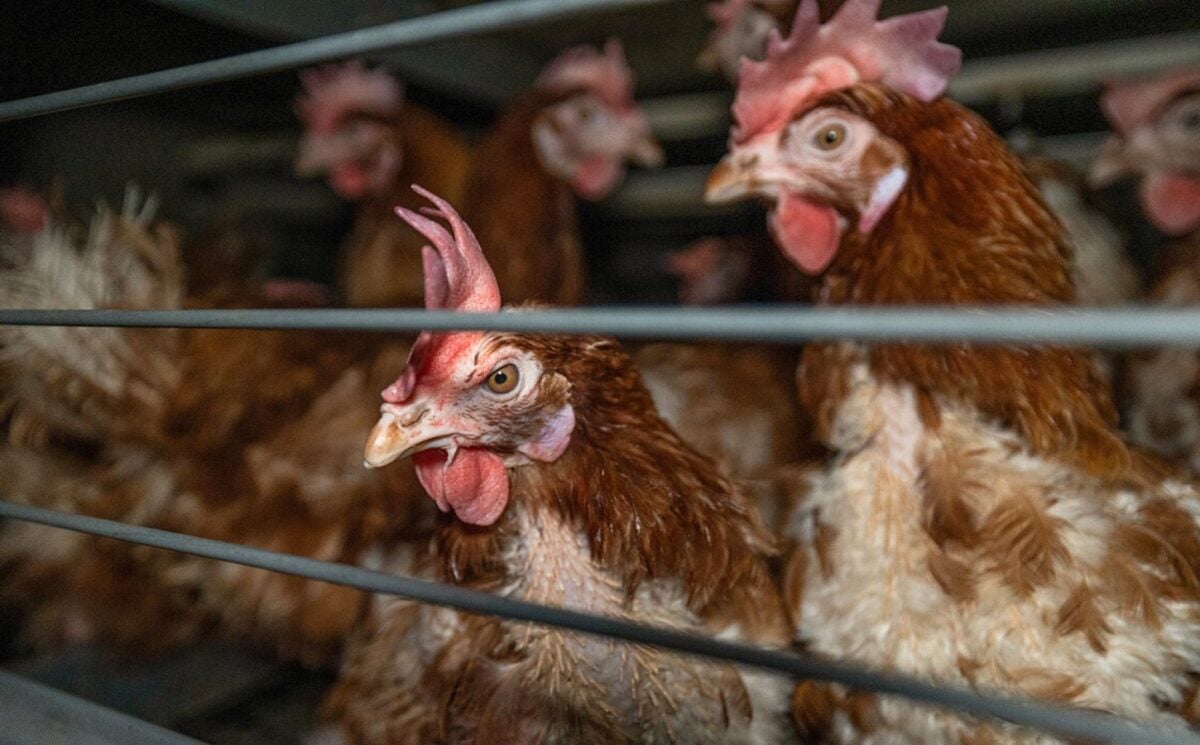A huge fire at a farm in Texas has killed hens intensively farmed for eggs.
The fire started at Feather Crest Farms in Bryan, Texas, on Monday evening. Firefighters spent several hours putting out the blaze.
It is thought that tens of thousands of “egg-laying” hens may have died, though the total number is unknown. The cause of the fire is also reportedly yet to be determined.
Animal rights activists criticized the response of media outlets and individuals who seemed more concerned with a possible rise in the price of eggs than the enormous loss of life. “If these were cats or dogs, there would be an international outcry,” wrote animal advocate John Oberg on X.
Counting the lost lives
The devastating fire tore through two buildings on a factory farm in Bryan, Texas.
Feather Crest Farms Chief Executive Officer Sam Krouse said in a statement that only one of the buildings had chickens in it at the time of the fire. He also confirmed that all the birds inside had died, but did not give an estimate of the number.
According to Mercy for Animals, chicken barns can hold more than 20,000 birds at a time.
Last year, an estimated 100,000 hens died in a similar fire at an egg farm in Connecticut. In 2022, a report from Animal Welfare Institute estimated that more than half a million farmed animals, including chickens, goats, sheeps, and rabbits, had died in barn fires in a single year, many of them preventable.
Despite the hen death count, Fox News stated that “no one was injured” in the fire. That phrasing mirrored reports in local news that “there have been no injuries or deaths reported.” Feather Crest Farms is owned by MPS Egg Farms, one of the biggest egg producers in the United States. The company proclaims that “[w]ith 11 million laying hens, MPS Egg Farms produces 9 million eggs […] every day.”
Intensive egg farming

In the US, the vast majority of egg-laying hens are raised in battery cages. Each bird has a space no larger than an A4 sheet of paper.
The scale and suffering of the intensive egg industry is immense. In the US, hens used to produce eggs have such limited space that they are unable to carry out natural behaviors like stretching their wings, perching, or nesting. Hens will be kept in these conditions for around two years, before being sent to the slaughterhouse when their egg production slows.
Male chicks are surplus to the industry, so they will be killed at birth. This will either be done by gassing or maceration, where they will be thrown into high-speed grinders while still alive.






